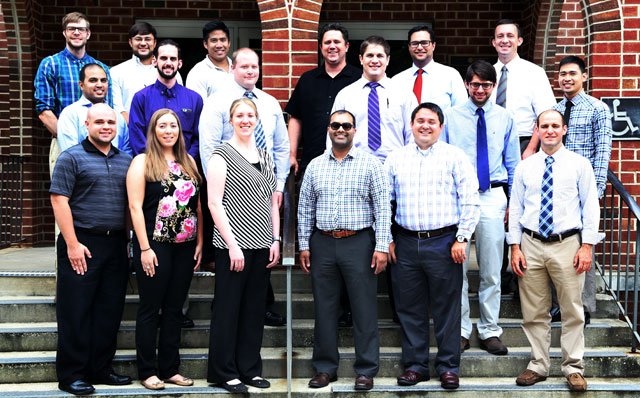The Role of the Resident
Residents can fill several roles here at UNC Health Southeastern. First, they provide direct patient care for both inpatient and outpatient services. Inpatient services include pediatrics, cardiology, orthopedics, pulmonology, radiology, oncology, gastroenterology, endocrinology, obstetrics, women’s health, and much more. On some of these services residents serve both inpatient and outpatient roles. In the emergency department, our residents are supervised by board-certified Emergency Medicine physicians, who provide guidance and support. Our residents provide care to the community and manage medical and trauma patients. They serve on committees within the hospital structure. Also, they can participate in ongoing hospital quality or research projects pertinent to their area of interest. They may also participate in process improvement plans as a team member.
UNC Health Southeastern’s Medical Education program has residency-run clinics in Family Medicine and Internal Medicine. In these settings, the resident provides initial hands-on care of the patient as well as completes the office visit documentation, with review by the program director or clinical preceptor. The program director and clinical preceptors are board certified and serve as a resource for the resident. Collaborative and lifelong learning takes place daily. Patient care will be face-to-face with the resident who has experience in the clinical setting that they develop throughout their medical student rotation experiences, followed by a three-year residency. They are better able to meet the variety of needs that a patient can present to them in a clinic whether it’s their diabetes, an asthma exacerbation, or a pediatric well-child exam (family medicine). All residency-run clinics are taking new patients.
We attract residents to the Lumberton area that are community-minded. Many of these persons want to practice in a rural area and provide a full-spectrum of care to the community. The carefully selected residents not only understand the needs of the community but want to involve themselves in the community. We hope that they will remain in the area after graduation to medically serve the community and train the incoming residents and students.
Campbell University’s Jerry M. Wallace School of Osteopathic Medicine is our sponsoring institution for academics as well as provides administrative duties for the vice president and chief medical officer, program directors, and core faculty in order to maintain the residency program standards.
